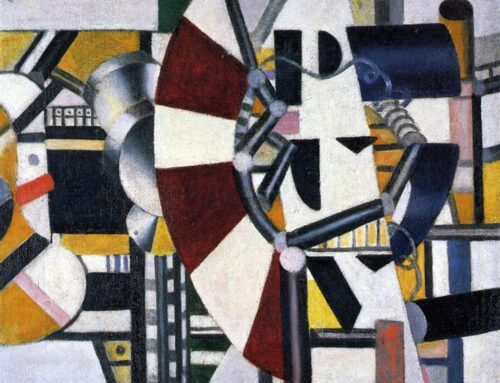On humanity in the sciences: or, how we have forgotten our sense of measure, and of limits. From the remarks:
I used, just before, the term “human proportions.” This presupposes that there is a proper size to everything in the world, that there is a measure to everything which must not be exceeded. Nobody knew this better than the Greeks with their famous μηδὲν ἄγαν — of nothing too much. We have lost entirely this sense of measure, of reticence, of knowing one’s own boundaries. Man is only strong when he is conscious of his own weakness….
Professional scientists have, by necessity, limited vision. They should not be allowed to drive freely across humanity, because, with their eyes fixed on the highest, they are bound to produce collisions with the nearest. This does not mean that the professional nonscientists who run this country are any better; they are only different….
What I used to call “human beings” are becoming rarer as I look around. There was a time-well, it is long gone-when St. Augustine could say: “The heart speaks to the heart.” But now computer talks to computer. Most people I meet in my or other universities seem to be rejects from IBM. In fact, you can talk with them only in triplicate. Slaves or prisoners of NIH or NSF, of Xerox and Beckman-they are really the narrowest, the dullest kinds of experts or specialists; they are essentially molecular podiatrists: people who know all about the fifteenth foot of the centipede….
What is science? Truly a big question about which large books have been written that I have great difficulty in reading. I shall give a simple answer. Science is the attempt to learn the truth about those parts of nature that are explorable. Science, therefore, is not a mechanism to explore the unexplorable; and it is not its task to decide on the existence or nonexistence of God or to measure the weight of a soul. It is very unfortunate that science has become extremely arrogant … and that scientists arrogate to themselves a special right to speak out loudly, and often stupidly, on almost any topic. For instance, the National Academy of Sciences, which is, after all, only a sort of chamber of scientific commerce into which some very funny characters have entered through various backdoors, is widely regarded as the true receptacle of wisdom….
For never before has science become so alienated from the common man, and he, in turn, so suspicious of science.
I should by no means wish to give the impression that I am in favor of the old system. It was abominable. Nor am I, on the other hand, in agreement with the way things are done now; for I am convinced that with our methods of organizing and supporting it we are effectively killing science. We are destroying the whole concept of science, as it has developed over the centuries….
What science has done to the universities is that it has inflated and disfigured them; it has left them more bankrupt than they were before. The large private universities have been turned into huge corporations whose only business is to lose money. There are exceptions, but, in general, power-hungry, empty- headed money grabbers have taken over. The true and only function of a university, namely, to help young people find themselves by bringing to them the accumulated memory of mankind, has been swept aside….
The thoughtless, almost automatic use of science as the seed of technology has landed us in a fearful mess. The cry that what we need is more and ever more science has lost all persuasion, as far as I am concerned. The republic will not be saved by geese, not even by geese with a PhD….
It is, moreover, no consolation when I am told that there will always be a computer to help me. Quite apart from the probability that there will not always be a computer, for we are going into uncertain and dark times, a computer would be entirely useless to me: the idiot’s best friend is an idiot himself. What the scientist needs is a selective and nonautomatic memory and, even more, he needs plenty of empty spaces, as it were, between the reminiscences, for he works as in a dream of reason. Great scientific concepts often have an entirely noninductive, dream-like quality. So what a scientist requires more than anything is the ability to maintain empty spaces, both around and within himself. But our entire teaching establishment is directed against this need. Having ourselves lost the umbilical connection with the center of science, we always cram the newest into our students: lost souls teaching the young how to lose theirs.
Erwin Chargaff, from a talk at University of Wisconsin, 1975, in Heraclitean Fire: Sketches from a Life before Nature
For other posts with Chargaff, see here.






Leave A Comment